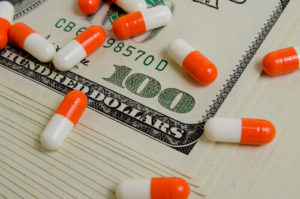In a recent case out of Corbin, Kentucky, former pharmacist Stephanie Collins was sentenced to 20 months in prison after being found guilty of defrauding Medicare and Medicaid by billing for medications and medical supplies she never provided to her customers, violating the False Claims Act.
Operating as Stephanie’s Down Home Pharmacy, Collins falsely claimed reimbursements for drugs and diabetic test strips that patients never received, leading to over $730,000 in unwarranted payments. This is just one of many cases in the ongoing, troubling reality of healthcare and pharmaceutical fraud. The DOJ knows that this is a pervasive issue that threatens the integrity and sustainability of our healthcare system–but Medicare or Medicaid whistleblowers have the power to bring justice to the healthcare system.
Healthcare fraud is a widespread issue impacting everyone who relies on medical services or insurance. When medical providers or suppliers like Collins misrepresent services or inflate prices to boost profits, they drive up healthcare costs for all Americans and erode trust in the healthcare system. Each fraudulent act drains taxpayer resources, stretching already-limited funds in vital programs like Medicare and Medicaid. This crime is not only a betrayal of public trust but also a drain on the lifelines that many rely on for essential care and treatment.
Collins’ sentencing is just one example, often made possible by whistleblowers–the ones who risk their careers to report fraud. Without their vigilance, cases like these can go unnoticed, causing untold financial losses and preventing millions in need from accessing care. Whistleblowers help unveil inside information that outsiders may oversee, especially in highly technical or regulated fields like pharmaceuticals and healthcare. Having inside, hands on evidence, is also what the government looks for when compiling a case for an investigation.
Investigations often won’t take place unless there is enough reliable evidence because so many agencies are involved. That’s why a whistleblower can be key to the process. The investigation into Collins’ fraudulent claims involved multiple agencies, including the DEA, IRS, and the Department of Health and Human Services’ Office of Inspector General. These organizations’ dedicated work is crucial, but they often rely on insider information to help identify perpetrators.
Given the harm caused by healthcare fraud, whistleblowers play an invaluable role in advocating for public resources and supporting government agencies in enforcing compliance. Protecting these individuals and empowering more insiders to come forward is essential to fighting fraud, holding wrongdoers accountable, and protecting the integrity of healthcare for many Americans.
If you have information relating to healthcare fraud, we want to hear from you. You could be the next whistleblower to bring justice to the healthcare system. If you would like to learn more about what it means to be a whistleblower under the False Claims Act or any of the other whistleblower rewards programs, please do not hesitate to contact us. We will connect you with an experienced member of the Constantine Cannon whistleblower team for a free and confidential consult.
Read Former Kentucky Pharmacist Sentenced for Healthcare Fraud Scheme & How Whistleblowers Can Help Cases Like This at constantinecannon.com






Leave A Comment